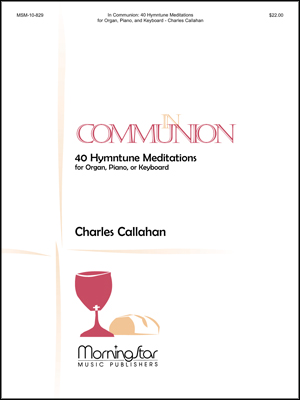- |
User Links
O Lord, who by Thy presence hast made light
O Lord, who by Thy presence hast made light
Author: Karl Johann Philipp SpittaPublished in 14 hymnals
Representative Text
1 O Lord, who by thy presence hast made light
The heat and burden of the toilsome day,
Be with us also in the silent night,
Be with us when the daylight fades away.
2 Oh, speak a word of blessing, gracious Lord!
Thy blessing is endued with soothing power;
On human hearts worn out with toil, thy word
Falls soft and gentle as the evening shower.
3 Come then, O Lord, and deign to be our guest,
After the day's confusion, toil, and din;
Oh, come to bring us peace, and joy, and rest,
To give salvation, and to pardon sin!
4 Bind up the wounds, assuage the aching smart
Left in each bosom from the day just past,
And let us on a Father's loving heart
Forget our griefs, and find sweet rest at last.
Source: Laudes Domini: a selection of spiritual songs, ancient and modern for use in the prayer-meeting #81
Author: Karl Johann Philipp Spitta
 Spitta, Carl Johann Philipp, D.D., was born Aug. 1, 1801, at Hannover, where his father, Lebrecht Wilhelm Gottfried Spitta, was then living, as bookkeeper and teacher of the French language. In his eleventh year Spitta fell into a severe illness, which lasted for four years, and so threw him back that his mother (the father died in 1805) abandoned the idea of a professional career, and apprenticed him to a watchmaker. This occupation did not prove at all congenial to him, but he would not confess his dislike, and his family were ignorant of it till an old friend, who was trying to comfort him after the death of a younger brother, discovered his true feelings. The younger brother had been preparing for ordination, and so Carl was now invited… Go to person page >
Spitta, Carl Johann Philipp, D.D., was born Aug. 1, 1801, at Hannover, where his father, Lebrecht Wilhelm Gottfried Spitta, was then living, as bookkeeper and teacher of the French language. In his eleventh year Spitta fell into a severe illness, which lasted for four years, and so threw him back that his mother (the father died in 1805) abandoned the idea of a professional career, and apprenticed him to a watchmaker. This occupation did not prove at all congenial to him, but he would not confess his dislike, and his family were ignorant of it till an old friend, who was trying to comfort him after the death of a younger brother, discovered his true feelings. The younger brother had been preparing for ordination, and so Carl was now invited… Go to person page >Text Information
| First Line: | O Lord, who by Thy presence hast made light |
| Original Language: | German |
| Author: | Karl Johann Philipp Spitta |
| Language: | English |
| Copyright: | Public Domain |
Notes
Herr, des Tages Mühen und Beschwerden. C. J. P. Spitta. [Evening.] first published in his Psalter and Harfe. First Ser. Pirna, 1833, p. 93, in 4 stanzas of 8 lines. It is one of the finest German evening hymns, but of rather an unsingable metre. In the Leipzig Gesang-Buch, 1844, and the Gesang-Buch for the Grand Duchy of Saxony. 1883, it begins, "Herr, des langen Tags Beschwerden." Translated as:
0 Lord, Who by Thy presence hast made light, a good and full translation by R. Massie in his Lyra Domestica, 1860, p. 8. This has been repeated in varying centos in the Wes. II. Book , 1875; Supp line of 1880 to the Baptist Psalms & Hymns; Thring's Collection; Horder's Congregational Hymnal, 1884, &c.; and in America in Laudes Domini, N.Y., 1884.
Other translations are:—
"Oh Lord! Thy presence through the day's distractions," by Miss Fry, 1859, p. 6. (2) "My work was pleasant, Lord, my burden light," in the Family Treasury, 1«75, p. 587, signed "J. G." (3) "O Thou Who didst my burden share,' by Dr. R. Maguire, 1883, p. 30. [Rev. James Mearns, M.A.]
--John Julian, Dictionary of Hymnology (1907)
Tune
TOULONTOULAN was originally an adaptation of the Genevan Psalter melody for Psalm 124 (124). In one melodic variant or another and with squared-off rhythms, the tune was used in English and Scottish psalters for various psalm texts. It was published in the United States in its four-line abridged form (cal…
EVENTIDE (Monk)
According to some sources, William H. Monk (PHH 332) wrote EVENTIDE for Lyte's text in ten minutes. As the story goes, Monk was attending a hymnal committee meeting for the 1861 edition of Hymns Ancient and Modern of which he was music editor. Realizing that this text had no tune, Monk sat down at t…
GENOA (Smart)


 My Starred Hymns
My Starred Hymns





